02 Apr2019
By Ward Cummings
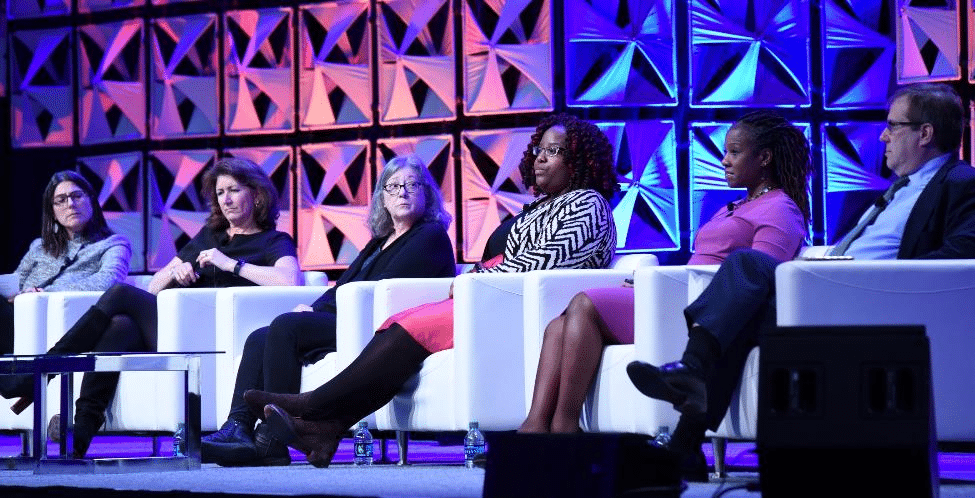
The Deeper Dive session, “Too Expensive to Ignore,” held during the AACTE 2019 Annual Meeting explored the many creative ways educators are working to address the high costs associated with becoming a teacher. The panel discussion was moderated by Karen DeMoss, executive director of Prepared to Teach, Bank Street College of Education, and the presenters were Tara Kini, director of state policy at the Learning Policy Institute (LPI); Karen Riley, dean of the College of Education at the University of Denver; Karen Kindle, division chair, Teacher Residency and Education at the University of South Dakota (USD); Jeannie Aversa, coordinator of educator effectiveness at the Syracuse City School District; and Nichole Brown, director of field placement and project director, Teacher Opportunity Corp II at SUNY Oswego. The group of educators engaged in a lively conversation about how to create sustainable funding for teacher residencies.
DeMoss began the discussion with an overview of the reasons solutions to the funding problem are necessary. She shared that attracting diverse candidates to the teaching profession requires a focus on the money matters that teaching candidates care about. For example, 40% of undergraduates and 76% of graduate students work full time, and they incur debt that is often untenable in comparison to the salaries they can expect as teachers.
21 Mar2019
By Ward Cummings
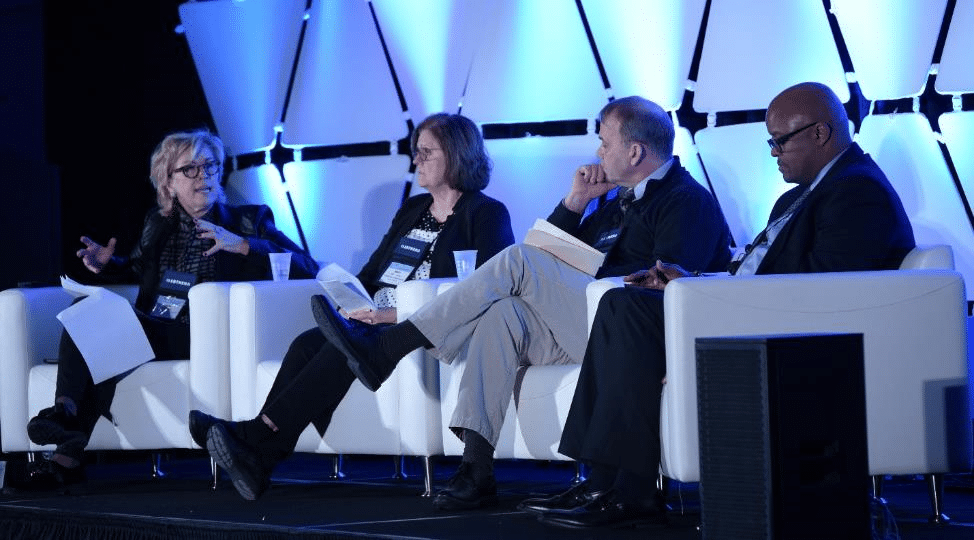
During the AACTE 2019 Annual Meeting, panelists for the Deeper Dive session, “Innovations to Address Today’s Workforce Needs” examined inclusive education preparation and strategies to address the national teacher shortage. The session highlighted AACTE’s partnership with the Collaboration for Effective Educator Development, Accountability, and Reform (CEEDAR) Center at the University of Florida and its federal supporters.
AACTE Consultant Jane West, who leads the Association’s work with CEEDAR, moderated a discussion with panelists Mary Murphy and Mark Seals (Bowling Green State University) and Marvin Lynn (Portland State University) on best practices at Bowling Green’s undergraduate teaching program and Portland State’s master’s program.
19 Mar2019
By Kirsten O'Brien
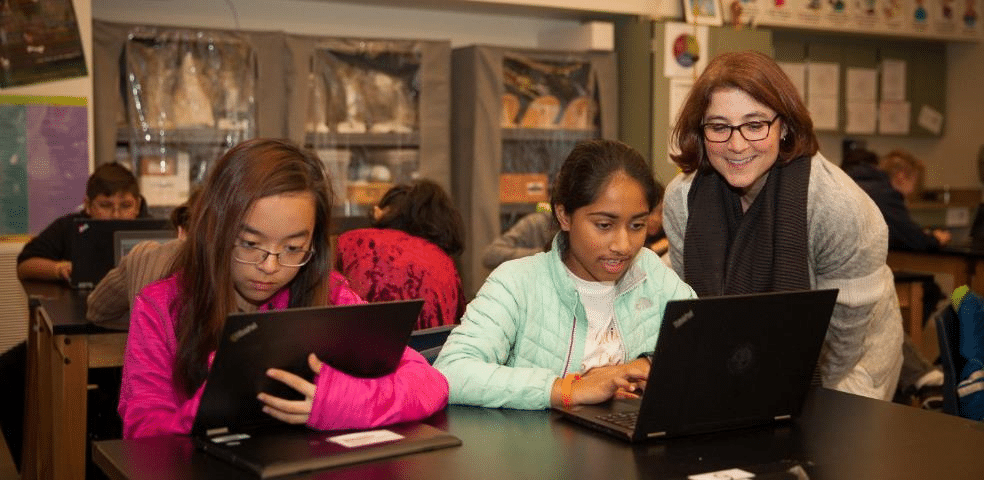
Code.org is offering scholarships for thousands of eligible middle and high school teachers to attend professional learning workshops. The workshops prepare teachers from all backgrounds to teach computer science in their classroom—no prior computer science experience is necessary. The workshops begin with a 5-day, in-person summer workshop and continue with 4 single-day follow-up workshops throughout the year. Dates and locations are assigned by region.
The lack of a computer science teacher is the biggest barrier to offering the subject in most schools, even though computer science is among the fastest growing industries in the United States. Currently, just 35% of U.S. high schools teach it and only 10% of STEM graduates study it. What’s more, computing and computer science are plagued by tremendous underrepresentation of African American, Latinx, and female students, despite the fact that these groups represent 65% of the entire U.S. population.
04 Mar2019
By Brandon R.T. Frost
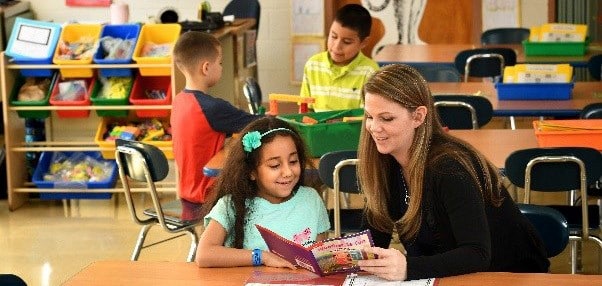
AACTE is now accepting applications from member institutions to join a new networked improvement community (NIC) focused on special education teacher recruitment and retention.
The shortage of special education teachers and the lack of diversity among all teachers have been well documented. Half of all schools and 90% of high-poverty schools struggle to find qualified special education teachers.
The aim of this NIC is to positively impact the special education teacher shortage and the lack of diversity in the special education teacher workforce in public schools. Participating institutions will identify a range of best practices related to increasing enrollment, strengthening partnerships with P-12 schools, and retaining special education teachers.
Read more about this new initiative on our website and in the Reducing the Shortage of Special Education Teachers NIC Charter.
Applications are due on April 1, 2019. Member institutions will be selected through a structured review process and notified in late April of 2019. An introductory virtual meeting will be held in May of 2019, and the first in-person convening will be held in the fall of 2019.
19 Feb2019
By Katrina Norfleet

Jacob Easley II, dean of the Graduate School of Education at Touro College, recently authored A Way Forward Toward Professionalizing Teacher Education: A Response to the AASCU Teacher Education Task Force Survey, a commentary published in the Educational Renaissance journal. In the paper, Easley reviews the recommendations resulting from the 2016 American Association of State Colleges and Universities (AASCU) Teacher Education Task Force survey. The survey was completed by member presidents, provosts, and their deans of education at public institutions of higher learning to better understand the state of the profession.
The results from the national AASCU survey yielded six recommendations for quality teacher education programs. Of the six, Easley categorizes the first four are as similar to the standards that inform national accreditation by the Council for the Accreditation of Educator Preparation (CAEP):
- Bolster clinical experiences
- Ensure strong university-school partnerships
- Step up recruitment into preparation programs
- Build agreements with community colleges
13 Feb2019
By Jacqueline Rodriguez
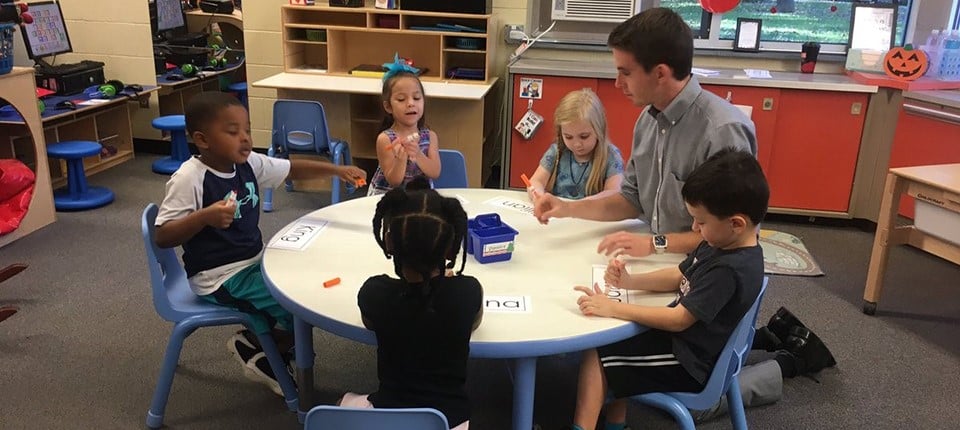 AACTE will launch a Networked Improvement Community focused on Special Education Teacher Recruitment and Retention in May of 2019. The NIC will investigate strategies to address the persistent shortages in the field of special education.
AACTE will launch a Networked Improvement Community focused on Special Education Teacher Recruitment and Retention in May of 2019. The NIC will investigate strategies to address the persistent shortages in the field of special education.
The shortage of special education teachers and the lack of diversity among all teachers have been well documented. Half of all schools and 90% of high-poverty schools struggle to find qualified special education teachers. Forty-eight states and the District of Columbia report special education teacher shortages. However, special education teacher shortages are not evenly distributed across the country. Generally, high poverty areas—both urban and rural—are most likely to experience the most severe teacher shortages, including those in special education. States vary in the degree of shortage they experience.
06 Feb2019
By Kelly Hinchcliffe
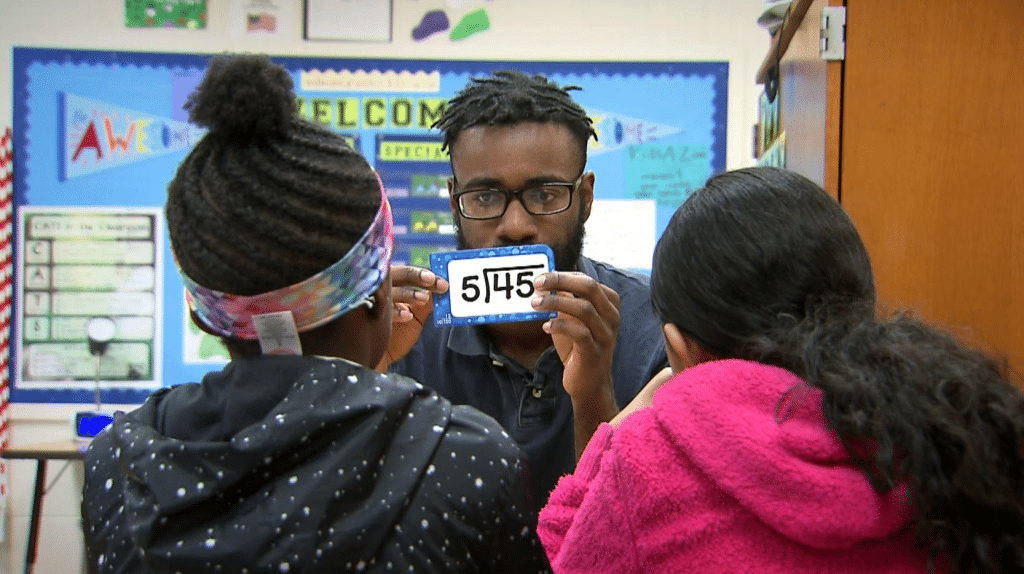
This article and photo originally appeared on wral.com and are reprinted with permission.
Muhammed Clemons, a Winston-Salem State University elementary education major, says he struggled with the way some teachers handled his disobedience when he was a child. That inspired him to become a teacher and be a role model to his future students, especially those who struggle in school like he did.
NC’s colleges of education: Student diversity
North Carolina’s 46 colleges of education enrolled more than 51,000 students in their undergraduate programs from 2011 to 2017. Search the database below to see how many students each college’s undergraduate education program enrolled by race and gender during those years. The data include both public and private colleges.
05 Feb2019
By Jerrica Thurman
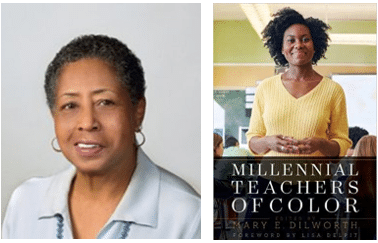 AACTE is delighted to announce the selection of Millennial Teachers of Color, by Mary E. Dilworth to receive the 2019 AACTE Outstanding Book Award. The award will be presented at the AACTE 71st Annual Meeting Closing Session, February 24, in Louisville, KY.
AACTE is delighted to announce the selection of Millennial Teachers of Color, by Mary E. Dilworth to receive the 2019 AACTE Outstanding Book Award. The award will be presented at the AACTE 71st Annual Meeting Closing Session, February 24, in Louisville, KY.
The volume, published in 2018 by Harvard Education Press, explores the opportunities and challenges for creating and sustaining a healthy teaching force in the United States. Millennials are the largest generational cohort in American history, with approximately 90 million members and, of these, roughly 43 percent are people of color. This publication offers a fresh look at these millennials and explores their views of the teaching profession, focuses attention on their relation to schools and teaching and considers how these young teachers feel about teaching for social justice.
05 Feb2019
By Katrina Norfleet
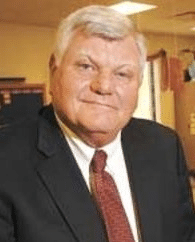 AACTE’s Committee on Professional Preparation and Accountability has selected Kelly C. Henson to receive the 2019 AACTE David G. Imig Award for Distinguished Achievement in Teacher Education. Henson, who in January 2019 retired as the executive secretary at the Georgia Professional Standards Commission, will be presented with the award at the AACTE 71st Annual Meeting, February 22-24, in Louisville, KY.
AACTE’s Committee on Professional Preparation and Accountability has selected Kelly C. Henson to receive the 2019 AACTE David G. Imig Award for Distinguished Achievement in Teacher Education. Henson, who in January 2019 retired as the executive secretary at the Georgia Professional Standards Commission, will be presented with the award at the AACTE 71st Annual Meeting, February 22-24, in Louisville, KY.
The Imig Award, named for AACTE President and CEO Emeritus David G. Imig, recognizes distinguished achievement in the formulation, implementation, or analysis of teacher education policy, or in the performance of distinguished scholarship in educator preparation.
Since 2007, Henson has led substantive educator preparation policy, certification, and ethics reform efforts in his role at the Georgia Professional Standards Commission. During his distinguished career of over 45 years in education, he also served as the superintendent of schools in Floyd County, principal of Walton High School, principal of Pope High School and associate superintendent in Marietta City Schools in Georgia. He has contributed to the statewide and national implementation of tiered certification, preparation program effectiveness measures (PPEM), performance-based educational leadership, enhanced ethics instruction and assessment and job-embedded professional learning.
14 Jan2019
By Jerrica Thurman
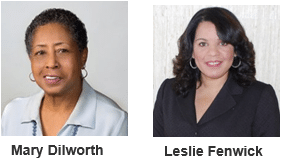 AACTE is pleased to announce the keynote speakers for the 71st Annual Meeting Closing Session are Mary Dilworth, editor of Millennial Teachers of Color, and Leslie Fenwick, dean emerita of Howard University. The session will take place at the Kentucky International Convention Center on February 24, 2019.
AACTE is pleased to announce the keynote speakers for the 71st Annual Meeting Closing Session are Mary Dilworth, editor of Millennial Teachers of Color, and Leslie Fenwick, dean emerita of Howard University. The session will take place at the Kentucky International Convention Center on February 24, 2019.
Join this dynamic duo in a provocative discussion that probes beneath the surface to address how the millennial generation of teachers and those of color, in particular, have become agents of change in education. Discover why the missing link in the recurrent conversation about teacher diversity and inequities is the millennial generation—the most diverse, educated, socially connected, and now largest generation in the workforce.
11 Jan2019
By Jerrica Thurman
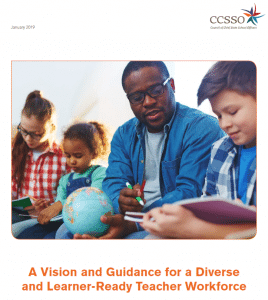 The Council of Chief State School Officers (CCSSO) released yesterday A Vision and Guidance for a Diverse and Learner-Ready Teacher Workforce, a report that outlines key recommendations state education chiefs, leaders in educator preparation, local education agencies, and others can take to ensure each child in the public school system is taught by a diverse and learner-ready teacher workforce. The report highlights actions for attracting, preparing, placing, supporting, and retaining teachers from diverse ethnic or racial backgrounds and socioeconomic experiences. It identifies specific policy levers state education agencies (SEAs) have authority over that should be activated to achieve the vision of what success can look like for students and teachers as well as highlight distinct responsibilities of SEAs where they have a moral imperative to lead for equity. Additionally, the report appendix references some of the best practices and policy recommendations states have implemented to push this work forward.
The Council of Chief State School Officers (CCSSO) released yesterday A Vision and Guidance for a Diverse and Learner-Ready Teacher Workforce, a report that outlines key recommendations state education chiefs, leaders in educator preparation, local education agencies, and others can take to ensure each child in the public school system is taught by a diverse and learner-ready teacher workforce. The report highlights actions for attracting, preparing, placing, supporting, and retaining teachers from diverse ethnic or racial backgrounds and socioeconomic experiences. It identifies specific policy levers state education agencies (SEAs) have authority over that should be activated to achieve the vision of what success can look like for students and teachers as well as highlight distinct responsibilities of SEAs where they have a moral imperative to lead for equity. Additionally, the report appendix references some of the best practices and policy recommendations states have implemented to push this work forward.
Along with state chiefs, AACTE and other national education organizations partnered with CCSSO on its new initiative to diversify the teaching profession through its Diverse and Learner-Ready Teachers (DLRT) Initiative. The collaboration led to the production of the new report—a viable resource for state teams that provide model research- and evidence-based state best practices and policies.
12 Dec2018
By Conra D. Gist
The Third Annual Diversified Teaching Workforce (DTW) Institute will convene on February 21, 2019 at the AACTE Annual Meeting in Louisville, KY. The Institute will convene a group of national leaders at colleges and universities across the United States to spotlight and explore innovative efforts for addressing racial/ethnic teacher diversity across five key areas: recruitment and retention, teacher preparation, mentorship, induction and professional development, and advocacy. Recognizing the need to create spaces within professional networks to discuss and unpack the challenges and possibilities for increasing teacher diversity, the institute offers presentations on current research, opportunities to converse in working groups, and panel sessions focused on best practices from teacher preparation and teacher diversity pipeline leaders. A brief overview of potential panels at the Institute include:
11 Dec2018
By Jeff Rea
This article originally appeared on oswego.edu and is reprinted with permission from the SUNY Oswego Office of Communications & Marketing.
The SUNY Oswego School of Education has joined three other educator-preparation schools in Bank Street College’s Prepared to Teach-New York Learning Network, an initiative designed to develop sustainable funding pathways for residency programs that embed teacher candidates in schools and communities for two full semesters.
Prepared to Teach-NY, recipient of a $500,000 grant from Carnegie Corporation of New York, cites evidence to support a sea change in what represents "student teaching" in the state. The new model takes a page from residencies in medical professions for deeper, richer, authentic experiences linking school placements to concurrent education coursework.
21 Nov2018
By Lynn M. Gangone and Renée A. Middleton
These letters to the editor, Don’t Blame Admissions Standards and Ed. Colleges Provide Value first appeared in Education Week on November 13, 2018. Reprinted with permission from the authors.
Don’t Blame Admissions Standards
To the Editor:
Marc Tucker has helped us better understand education systems around the world. Unfortunately, in his recent opinion blog post (“Teachers Colleges: The Weakest Link,” November 1, 2018), he demonstrates less understanding of America’s teacher-preparation programs than he has about programs abroad.
15 Nov2018
By Jerrica Thurman
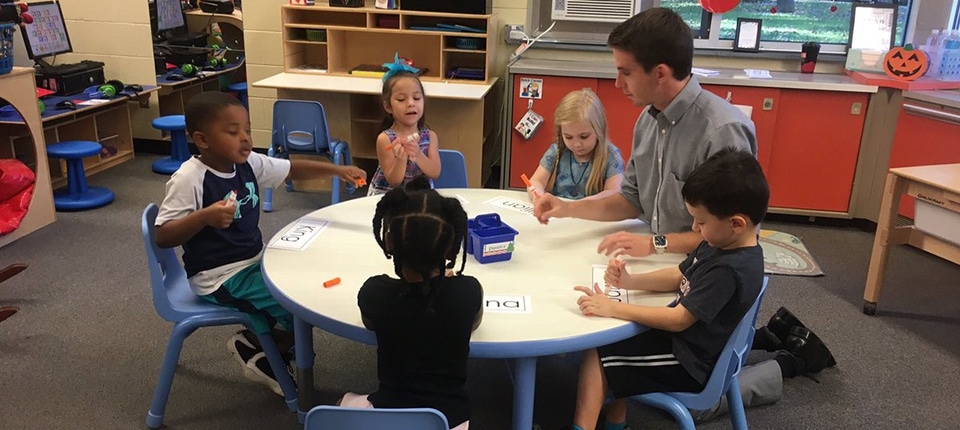
AACTE is a national partner for the University of Florida’s Collaboration for Effective Educator Development, Accountability, and Reform (CEEDAR) Center, which helps states and institutions of higher education to develop the ability of every teacher to prepare students with disabilities for college and careers. As a federally funded multi-million dollar project, CEEDAR works with AACTE and others to promote the preparation of all educators to have the mindset and skillset for effectively instructing students with disabilities along with all other students in the mainstream classroom.
“This initiative is about ensuring that all educators have the skills to work effectively with students with disabilities,” said AACTE Consultant Jane West, who leads the Association’s work with CEEDAR. “Special education has too often been considered a place and not a service. We are highlighting and promoting preparation for both general and special educators so they can provide effective instruction to students with disabilities in inclusive ways with an eye toward raising expectations and undermining the stigmatizing of students with disabilities.”












 AACTE will launch a Networked Improvement Community focused on Special Education Teacher Recruitment and Retention in May of 2019. The NIC will investigate strategies to address the persistent shortages in the field of special education.
AACTE will launch a Networked Improvement Community focused on Special Education Teacher Recruitment and Retention in May of 2019. The NIC will investigate strategies to address the persistent shortages in the field of special education.
 AACTE is delighted to announce the selection of
AACTE is delighted to announce the selection of  AACTE’s Committee on Professional Preparation and Accountability has selected Kelly C. Henson to receive the 2019 AACTE David G. Imig Award for Distinguished Achievement in Teacher Education. Henson, who in January 2019 retired as the executive secretary at the Georgia Professional Standards Commission, will be presented with the award at the AACTE
AACTE’s Committee on Professional Preparation and Accountability has selected Kelly C. Henson to receive the 2019 AACTE David G. Imig Award for Distinguished Achievement in Teacher Education. Henson, who in January 2019 retired as the executive secretary at the Georgia Professional Standards Commission, will be presented with the award at the AACTE  AACTE is pleased to announce the keynote speakers for the
AACTE is pleased to announce the keynote speakers for the  The
The 